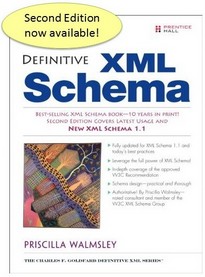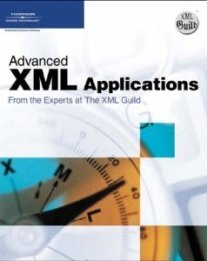lexs:SearchRequestMetadataType
A structure that describes search request metadata. Used in StructuredSearchRequestMessage in a doStructuredSearch request and in TextSearchRequestMessage in a doTextSearch request.
Complex type information
Namespace: http://usdoj.gov/leisp/lexs/3.1
Schema document: lexs/3.1/lexs.xsd
NIEM Properties:
- Base: s:Metadata
Content
- Sequence [1..1]
- lexs:RequestedData [1..*]Requested Data Code value
- lexs:DataOwnerIdentifier [0..*]Identifier that uniquely identifies an organization and a system in an organization that owns data. This identifier is used in DataOwnerMetadata that is part of PackageMetadata, and in DataOwnerInformation that is part of DataOwnersResponseMessage.
- lexs:MaxItemMatches [1..1]The maximum number of hits the user (or application acting on behalf of the user) wants back in a response. Note that the service provider may override this value if the service provider's limit is less than the number requested.
- lexs:MatchBeginAfter [0..1]Indicates to the service provider where the next set of hits should start.
- lexs:MatchEndBefore [0..1]Value is used by a service provider on a next/previous query to determine what set of data to return. Value is of string type to give service provider as much flexibility as possible for point data format.
- lexs:ServiceProviderSearchID [0..1]Search ID value that is meaningful to the service provider for returning additional hits. This allows the service provider to utilize any state information it may retain so that it does not have to rerun the query again to get the next or previous set of results. Service providers define this value; requesters merely copy the value back into the follow-up query.
- lexs:DataItemCategoryText [0..*]Indicates the type of event or data type. This should be a user-friendly and reasonably intuitive string that can be used in a list or as a check-box label in a GUI. Used as a search parameter in SearchRequestMetadata.
- lexs:SortOrder [0..1]This indicates to the service provider what set of hits, most recent or most relevant, should be returned if there are more hits than can be returned in a single response. The responding system determines what is most relevant.
- lexs:TimeoutDuration [0..1]Specifies the time in seconds within which the requesting system would like to receive a response. This element would primarily be used to convey a time period past which a response would not be useable by the requesting system. The time period specified excludes time for connection overhead to avoid the need for time synchronization between systems and thus should be slightly shorter than the period needed by the requesting system. The server, if capable of supporting such functionality, should cancel the search and return a timeout advisory response within the time limit specified. It is suggested that the search query should be timed out by the server prior to the time limit specified in order to allow time for canceling the query and returning a response before the period expires.
- lexs:NumberOfStructuredPayloadTerms [0..*]Number of search terms used in a query for a given structured payload. Structures provides a count of search terms in any included structured payload elements so that service providers that do not understand one or more structured payloads will have a count of terms that were ignored for the purposes of calculating an accurate MatchScore. This element indicates the structured payload to which it applies and provides the number of search terms in that structured payload section.
- Choice [1..1]
- lexs:StructuredPayloadsRequestedCodeStructured Payloads Requested Code Value can have the values "All" or "None". "All" indicates that the requesting system would like to receive any structured payloads that the service provider can return. "None" indicates that the requesting system does not want any structured payloads.
- lexs:StructuredPayloadsRequestedListList of requested structured payloads. If this list element is provided instead of the code element, it means that the requesting system does not want to receive responses with any structured payloads except for the ones specified.
from subst. group lexs:StructuredPayloadsRequestedAbstract - lexs:DomainAttribute [0..*]Placeholder for various domain attributes. For Value/Pair attributes use lexs:AttributeName and lexs:AttributeValue elements. For hierarchical data xsd:any structure should be used.
Attributes
| Name | Occ | Type | Description | Notes |
|---|---|---|---|---|
| s:id | [0..1] | xsd:ID | The id attribute is used to define XML IDs for NIEM objects. These IDs may be targets of reference elements, metadata attributes, and link metadata attributes. | from type s:MetadataType |
Used in
- Element lexs:SearchRequestMetadata
Type inheritance chain
- s:MetadataType
- extended by lexs:SearchRequestMetadataType


